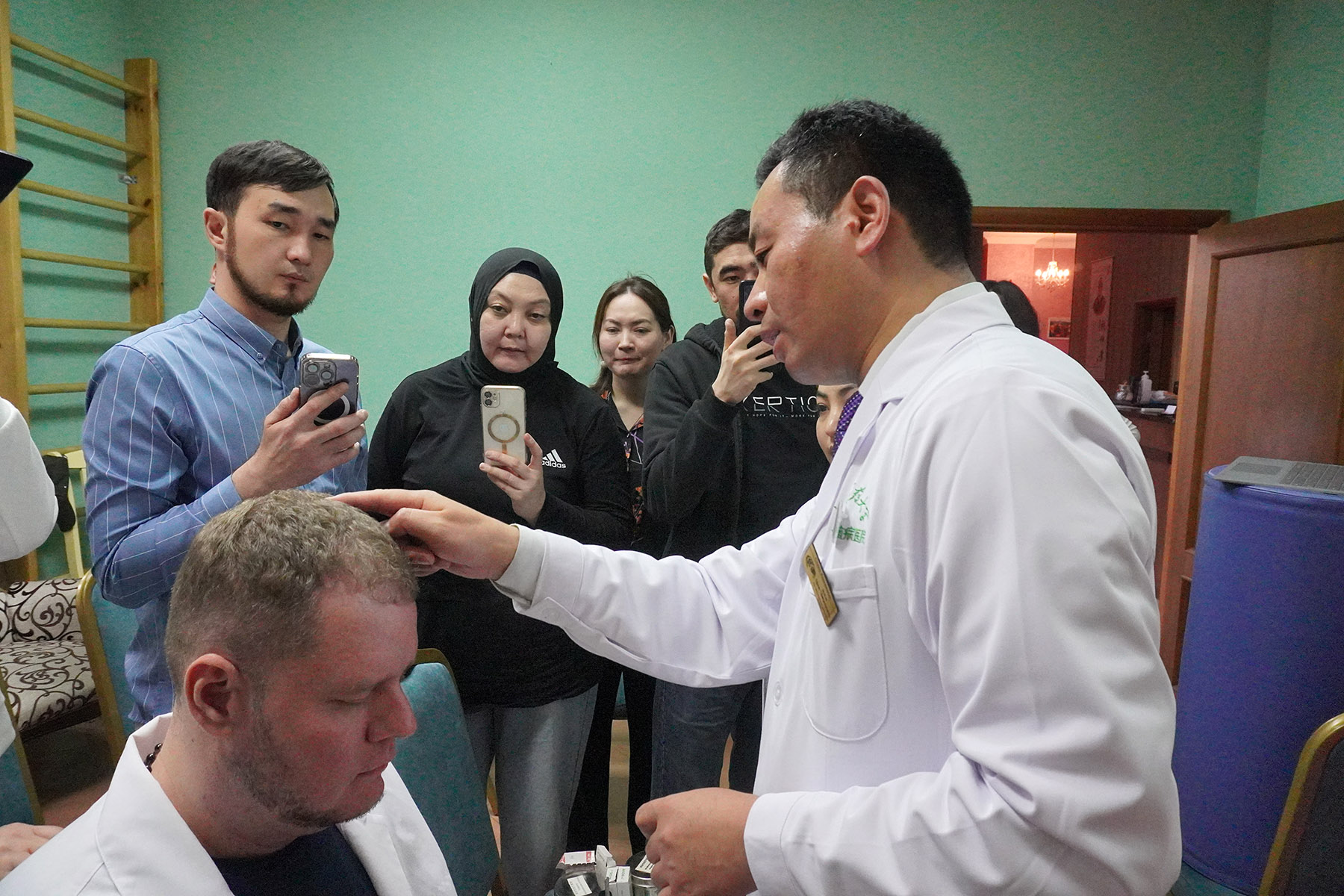Center jointly built with Chinese offers affordable, quality treatment in Astana

Born into a family of traditional Chinese medicine practitioners, 26-year-old Ismail Daurov from Kazakhstan has wanted to follow in his father's and grandfather's footsteps and become a practitioner of traditional Chinese medicine since he was a child.
So when a TCM clinic that was jointly built by local and Chinese health workers officially opened about a year ago in Astana, capital of Kazakhstan, he jumped at the opportunity to work there.
"Many Kazakh patients had already resorted to other means — even traveling to other countries — to find treatment for their diseases before visiting us, and they were amazed at the immediate outcomes of TCM therapies such as acupuncture, cupping and massage," he said.
READ MORE: Educational exchanges bolster traditional friendship
The establishment of the China-Kazakhstan Center for Traditional Medicine stems from a cooperation agreement signed by the Xi'an TCM Hospital of Encephalopathy in Shaanxi province, the Shaanxi Provincial Hospital of Chinese Medicine and Kazakh authorities in September 2022. The facility was inaugurated in December that year and began offering services in May last year.
Spanning 300 square meters, the center is now staffed by about a dozen Chinese and Kazakh healthcare workers and mainly provides TCM treatment and rehabilitation services for neurological disorders in children and adults, as well as common and chronic diseases.
Li Honggang, head of the Chinese team at the center and a hospital manager from the Xi'an TCM Hospital of Encephalopathy, said that because of the country's cold, windy climate and a traditional diet heavy in beef and lamb, a large number of patients suffer from high blood pressure, high cholesterol, lower back and leg pain and rheumatoid arthritis.
"TCM treatments such as massage and moxibustion can play an effective role in alleviating these symptoms, and we have also introduced physical therapy equipment to the hospital to help patients with cerebral palsy or paralysis to recover," he said.
Despite the language barrier, Li said he could tell that patients are satisfied with their medical services and that TCM is gaining popularity in Kazakhstan.
"Local patients tend to give us a thumbs up to express their appreciation," he said. "Moreover, sometimes we ask them how they learned about the clinic, and many of them say through word-of-mouth."
ALSO READ: Ties with SCO partners praised
Li attributed the success of the clinic to its quality treatment, affordable prices and a basic knowledge of traditional medicine among Kazakh people. "Kazakhstan also has a history of using herbs to treat illnesses, so local people more or less understand the effects of traditional medicine, and the increasing communication between China and Kazakhstan in recent years has further spread awareness about TCM," he said.
Li added that construction will begin soon on a new three-story center covering 1,500 sq m.
The current center has seven TCM specialists who have been dispatched from Xi'an, as well as four Kazakh doctors and three Kazakh managers.
Daurov said he is grateful for the opportunity to work alongside Chinese experts so he can keep polishing his skills. "I hope TCM will gain more popularity in Kazakhstan and even become available at local public hospitals in the future," he said.
Contact the writers at wangxiaoyu@chinadaily.com.cn


